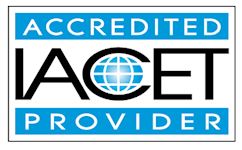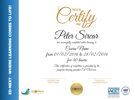- Exam(s) / assessment(s) is included in price
Fundamentals of Technical Writing
Ed-Next
Summary
Overview
If you enjoy writing and love a challenge, technical writing just might be a career for you. Our Fundamentals of Technical Writing course exposes you to all aspects of this form of writing, including how to translate technical documents into everyday language that people will understand. Technical writing requires writing, editing, and rewriting since clear writing is often the product of several revisions. We cover the basics of drafting documents, becoming a master of a particular subject matter, different writing habits, and tools of the trade, including image and publishing software. So get ready to turn the page and starting learning more about the interesting field of technical writing!
Course media
Description
After completing this course, you should be able to:
- Identify preliminary tasks for technical writing, including types of technical documents
- Recall steps in creating a rough draft and ensuring clear writing
- Recognize essentials of the review process and how illustrations aid in comprehension
- List the overall aspects of a technical document, including editing, rewriting and design
Fundamentals of Technical Writing Module 1
The Technical Writing Discipline
In week one, we explore aspects of technical writing, including how to assess documents and audience. A technical writer essentially translates the hard-to-understand jargon of the technical field into something that is understood by the reader of the writing. We will also discuss preliminary steps that need to take place before writing begins, such as learning your subject matter and collecting information.
- What Does a Technical Writer Do?
- Technical Writing Jobs
- Preliminary Technical Writing Tasks
- Writing, Editing and Recognizing a Good Document
- Subject Matter
Fundamentals of Technical Writing Module 2
Clear Writing
Quality information is created in technical writing when an early analysis is made of your entire presentation, which is best done with an outline. It involves organizing the information you gathered into a logical format detailing how you plan to organize the document. This week we will discuss initial planning phases and how to outline material. We will also explore various writing habits and methods, such as the KISS (Keep It Short and Simple) principle and international considerations concerning translations.
- Organizing Content
- Initial Draft
- Writing Habits
- Procedural Writing
- International Considerations
Fundamentals of Technical Writing Module 3
Illustrations and Editing
Technical writers write, right? Yes, but technical writers also spend a significant amount of time handling visual items, such as graphics, illustrations, and photographs. Especially related to information available online, manipulating images is a huge aspect to a technical writer’s job. This week will examine the correlation between visuals and writing while exploring various types of illustrations. Also, we will explore the various aspects of how technical writing is edited, including information confirmation, style guidelines, and the difference between production editing, technical editing, and copy editing.
- Correlation Between Visuals and Writing
- Rich Media Graphics
- Style Guidelines
- Tech Writing Editing
- Reviews
Fundamentals of Technical Writing Module 4
Wrapping Up a Technical Document
In a large document, there are certain items that need to be placed in specific locations throughout your pamphlet or book. In this module, we will review these items, whether they are in the front of your document, or in the back. We are also going to review editing and proofreading your writing, testing the document and finally, putting a freeze on your document. Also, if you want to grow with the future of technical writing, you must know web page design and understand the languages involved with creating online material. This week we will take a look at types of markup and publishing software.
- Front and Back Sections
- Editing and Rewriting
- Design
- Tools of the Trade
- Word Processing, Image and Markup Software
Ed4Online has been approved as an Accredited Provider by the International Association for Continuing Education and Training (IACET). In obtaining this accreditation, Ed4Online has demonstrated that it complies with the ANSI/IACET Standard which is recognized internationally as a standard of good practice. As a result of the Accredited Provider status, Ed4Online is authorized to offer IACET CEUs for courses and programs that qualify under the ANSI/IACET Standard.
You will earn 2.4 IACET continuing education credits by completing this Ed4Online course. This course is 24 contact hours which equals 2.4 CEUs based on the IACET standard. The International Association of Continuing Education and Training is the highest quality worldwide standard for Continuing Education Unit.
The Continuing Education Unit (CEU) was created by IACET as a measurement of continuing education. One (1) IACET CEU is equal to ten (10) contact hours of participation in an organized continuing education experience under responsible sponsorship, capable direction, and qualified instruction. Under IACET's care, the IACET CEU has evolved from a quantitative measure to a hallmark of quality training and instruction
Who is this course for?
Anyone interested in writing and publishing
Requirements
No prior qualification required
Career path
Application of principles learnt in this course
Reviews
Currently there are no reviews for this course. Be the first to leave a review.
Legal information
This course is advertised on reed.co.uk by the Course Provider, whose terms and conditions apply. Purchases are made directly from the Course Provider, and as such, content and materials are supplied by the Course Provider directly. Reed is acting as agent and not reseller in relation to this course. Reed's only responsibility is to facilitate your payment for the course. It is your responsibility to review and agree to the Course Provider's terms and conditions and satisfy yourself as to the suitability of the course you intend to purchase. Reed will not have any responsibility for the content of the course and/or associated materials.
FAQs
Interest free credit agreements provided by Zopa Bank Limited trading as DivideBuy are not regulated by the Financial Conduct Authority and do not fall under the jurisdiction of the Financial Ombudsman Service. Zopa Bank Limited trading as DivideBuy is authorised by the Prudential Regulation Authority and regulated by the Financial Conduct Authority and the Prudential Regulation Authority, and entered on the Financial Services Register (800542). Zopa Bank Limited (10627575) is incorporated in England & Wales and has its registered office at: 1st Floor, Cottons Centre, Tooley Street, London, SE1 2QG. VAT Number 281765280. DivideBuy's trading address is First Floor, Brunswick Court, Brunswick Street, Newcastle-under-Lyme, ST5 1HH. © Zopa Bank Limited 2024. All rights reserved.




